It’s 2013, which means we all survived the end of 2012. Despite those rumors we might not! So break out the bubbly, as it’s time for some of us to discuss our games and game trends of the past year.
This year I have the honor of being the first Tap contributor to write a Games of the Year list. My list starts with five games that stuck out to me personally this year. This isn’t just games I enjoyed (though it’s all games I enjoyed). It’s also a list of games that I feel represent some important trends that happened in games in 2012.
After the game list, I’m going to talk briefly about looking at games from the developer side in 2012 also, so you can get the full perspective of where I lived this year!
![]()
My Game of the Year: The Walking Dead
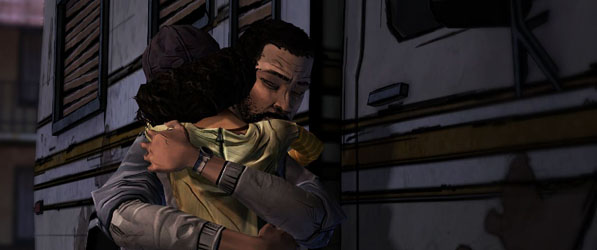
2012 was the year a zombie game moved me to tears.
There was a time when I was younger and games moved me frequently. But that time is passed. I have become old and jaded about game choices. I thought that it was me. But it’s more likely, now that I examine myself, that it was the games: those with their choices presented too-simplistically. Guilt trips without any guts. Mechanics, but no mindfulness.
The Walking Dead was a game I defined earlier this year as “the bare minimum” we should expect from story-based games. I still stand by that. Because characters should be real, and not shallow. Children should be people, not just symbols to make you sad for no reason. And if a game has a story and that story has zombies then it would be great if even the zombies mattered.
That isn’t to say that story should be the end-all, be-all, of every game. But a lot of times, the heart at the core is the reason why I, personally, play. The Walking Dead had that heart.
My hands down game of the year.
My Favorite Puzzles: Fez
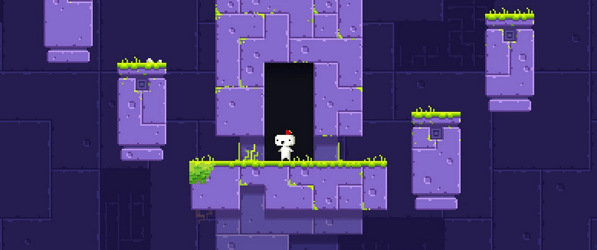
2012 was a year of difficult problems.
Another reason why I play sometimes is to have my brain hurt. For that, I’m giving my “most mindbending” shout-out this year to Fez, a game that made no apologies about the amount of codebreaking I would have to do to find all its secrets. I found myself in a lot of adventure and puzzle games this year, and I’ve returned often to enjoying the experiences that tax my brain as well as, or more than, my fingers.
Fez is far from perfect. Sadly, the recent patches to the game on XBox Live have made me afraid to turn it back on lest my save files be obliterated. But the pleasant time I spent with it otherwise made the surrounding drama worthwhile.
Honorable mention for puzzles: Primordia – a game with a lot of heart as well, and a few puzzles I absolutely loved. (And some interesting messages, too.)
Game I haven’t played yet this year but which might look like another contender: Zero Escape: Virtue’s Last Reward – I haven’t got the hardware yet to try out 2012’s sequel to Nine Hours, Nine Persons, Nine Doors, but based on my experience with the original I will probably enjoy the puzzles in this game.
Best First-Person-Walker: Thirty Flights of Loving
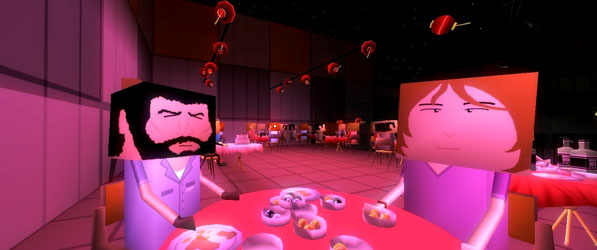
2012 was a year that a few games made us question what deserves to be called a game.
Dear Esther at first comes to mind, as a game about contemplatively walking from one place to another, exploring your own past along the way. But, honestly, though I enjoyed its atmosphere, I found myself a bit unmoved by it overall.
Instead, I’m going to give a shout-out to the smaller, but somehow no-less-ambitious Thirty Flights of Loving. This low-fi first-person exploration game doesn’t ask much of your time, and for a game that might last only fifteen minutes many thought the price was steep. But I played it three times, and, it came with the original Gravity Bone along with it, so I had no complaints.
Thirty Flights of Loving tells a very different story from Dear Esther, so they are worthy of comparison. Dear Esther is mostly about unraveling the past. Thirty Flights tells a story that is happening right the hell now. A heist plan has gone awry. Think fast! But occasional flashback sequences also give this story some grounding, showing the game’s characters in a few different lights. They provide some context, but, critically, not all the context.
The game has minimal interaction to move the plot forward. Action sequences – normally the bulk of a heist game – are entirely removed from Thirty Flights of Loving through the power of quick cuts. This leaves a “shooter” game where there was shooting, at some point in the story, but that part gets skipped. I did not miss the shooting.
Honorable mention for first person walker: The Stanley Parable – a game that deftly discussed how we do story and choices in games in a way that dovetails with a game like The Walking Dead surprisingly well.
Game I haven’t played yet this year but which might look like another contender: Journey. Well, that’s a third-person walker, but it’s clearly in the same spirit of story connection without too much action challenge. I look forward to trying it some time this upcoming year.
For Depth in Shooting: Halo 4

This is all not to say that 2012 was a year where we stopped shooting, because, we’re still shooting.
This troubles some gamers and developers. Earlier this year at E3, some journalists reported they were shocked at the level to which game violence is escalating. Video games were put under the spotlight again later this year, compared to real-world shootings, the details of which I do not need to repeat. A game-burning drive has even been organized to “promote discussion” about our shooters: our violent gaming entertainment.
Spec Ops: The Line was among the most critically acclaimed games of 2012. What appeared, at first play, to be an average military shooter, changed as it was played. In later chapters it is almost a horror game, and a stark critique of the military shooter itself. Violence that seemed at first justified and necessary was turned on its head. The game asked questions about war and heroism. Do the games we play really make us feel like heroes? Or is all this violence pointless and empty?
Meanwhile, while all that was happening, Halo 4 quietly asked different questions… that I’m not sure anyone actually heard. But they are equally relevant, thought-provoking and timely questions. How outdated are our notions of masculinity and femininity? How do we define a man? In a future where we are increasingly cyborgs, held and beholden to our technology, can the essence of humanity be retained? What does it in fact mean to be human?
And that’s how you write three paragraphs about Halo 4 without actually writing much of anything about Halo 4. To even this section out: marines, aliens, guns. To me, what Halo 4 had going for it as a message game is it doesn’t really hit you in the face. It gets under your skin.
I got a few free weeks next month to really get into the multi-player, so maybe I’ll let you know how that goes.
Honorable mention for thought in shooting: Spec Ops
Game I haven’t played yet this year but which might look like another contender: Far Cry 3. Maybe it works and maybe it doesn’t, but I can’t pass judgement until I’ve seen it for myself. Which, I so far haven’t. Sorry, 2012!
Lifetime Achievement Award for Best MMORPG Forever and Ever: City of Heroes
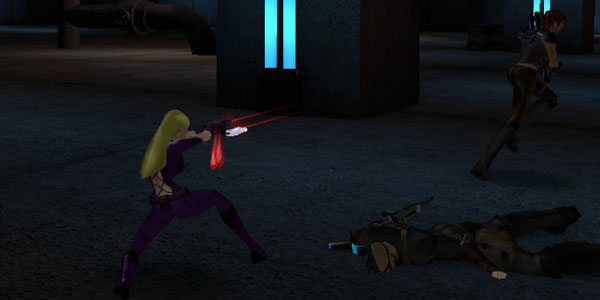
2012 was a year I said good-bye.
In 2011, aging MMORPG City of Heroes made a transition to the increasingly-popular free-to-play model. Despite bringing in a reasonable amount of profit, more than enough to stay afloat, this transition wasn’t as wildly successful as parent company NCSoft would have hoped. Compared to its other, higher profile projects, City of Heroes had a small playerbase. The game particularly struggled in Asian markets, because some features like PVP just weren’t a draw, or, even because superheroes are such an American thing.
City of Heroes was not perfect. It is still my favorite MMORPG. This was an incredibly groundbreaking game. The character generator was an immense draw, but this was also one of the first MMOs to have an Achievement system, and had an equally ground-breaking a user-created content system. The community was welcoming and friendly and the staff was creative and helpful.
I’ve seen MMOs die before. Heck, I even played on Matrix On-Line. But I don’t know if I can ever love an MMO the way I loved City of Heroes. For the heroes we were, for the friends I’ve met, City of Heroes gets my lifetime achievement award as the best MMO of all time.
Honorable Mention: None. Maybe someday.
And now, for some more of my overall trend-watch…
Development Trend Number 1: Your Triple-A iPhone
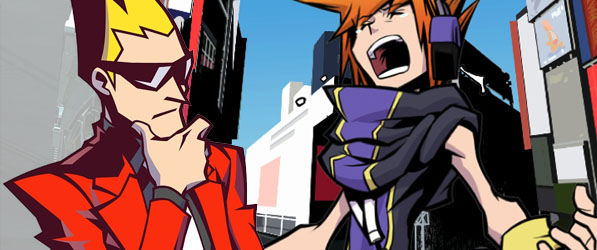
Last year I sought out another interesting, if small title, that came out a couple of years prior: Capcom’s mystery puzzle game Ghost Trick: Phantom Detective. I bought it for my aging DS Lite. But 2012 saw that game appearing in a pretty fair port on the iPhone… along with fairly other good games released for game-only handhelds in the past. The World Ends With You, a fabulously quirky JRPG from SquareSoft, also showed up with a new port, with Chrono Trigger hitting iPhone in November, Final Fantasy IV turning up in December, and many others.
So these games were released by Capcom and SquareSoft: two Japanese companies that did a pretty mixed job of connecting with American audiences this year. Both companies had bloated AAA releases that failed to be among most people’s favorites (Resident Evil 6, Hitman: Absolution). Both companies irritated their fanbases in various ways (ie, Capcom dropping the Megaman ball, Square’s lackluster Final Fantasy MMO and its reboot). And both companies quietly dug into their back catalog and released some absolute gold in 2012… for your telephone.
I am not, otherwise, an iPhone user. But I was, briefly, an iPhone developer.
There’s a sea change happening in mobile. Smaller indie players are finding it tougher to break in here, with so many offerings already available. Casual, occasional gamers have most of their needs already covered. Less-casual gamers will be able to access big-name titles (albeit, at big-name prices). Both of these mean it will be harder and harder, though not impossible, to push your app into the Top Ten. Even if it’s incredible.
If you’re a smaller studio, and you have a great game, there’s still a few ways to get it noticed on mobile. One: get it in a bundle, which is how I acquired Splice and Waking Mars this year among other great Android titles. Or, two: be an established developer with a previous track record, as in Super Hexagon. All worthy games, but the bottom line is it takes a lot of word of mouth to get your name out there. From what I’ve witnessed, it’s not easy going to make your fortune in mobile now, a trend bound to continue in the upcoming year.
Development Trend Number 2: The Slow Fall of Facebook
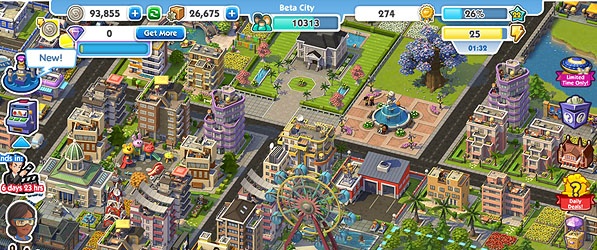
It’s a bad time to put your faith in Facebook. We all knew deep-down that the business practices that Zynga used, churning players quickly from one game to another, wouldn’t turn out to be sustainable. That didn’t stop some other developers from entering this market anyway.
There were battles this year about high-profile cloning, EA fighting Zynga in an all-out war about Facebook turf. Under their toes, the littler guys suffered. For example, Idle Worship, with its clever creatures and animations, looked like a promising new social venture… but at the end of the year, the little mini-civ game has failed to get critical mass. It’s still possible to make a living with social, but many developers have soured on Facebook’s oft-changing API, and diversified their social offerings across different networks.
Zynga, the biggest dog on Facebook, has had a struggling year despite releasing huge stables of new games. Some people are happy to see it start to falter, but it never feels good to me when developers lose their livlihood. And we saw a lot of that in 2012, especially among larger studios.
Development Trend Number 3: Kickstart My Heart
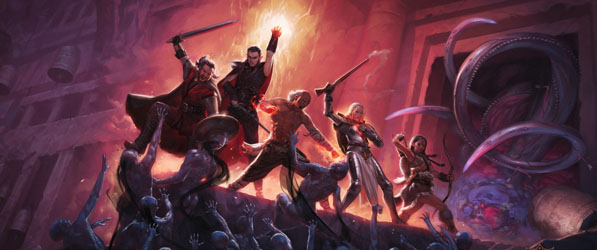
Kickstarter: what more can I say? I’ll just summarize…
The year started off with Double Fine raising over a million dollars in February to make an old-school adventure game. From there, other companies soon followed. 2012 was a banner year for public funding of independent game development. I honestly bought a lot of games in 2012. But most of them, from Obsidian’s big-budget Project Eternity, to Tales of Game’s comparatively modest Barkley 2, just haven’t been made yet.
Only time will tell if Kickstarter (and other crowdfunding platforms like IndieGogo) has staying power for funding new indie games. If it does, we may be moving into a new sort of future: where the customer hires game developers like a patron hiring an artist. But even if it doesn’t, I still don’t feel like we’re in a lot of trouble, because…
Development Trend Number 4: More Games Than Ever
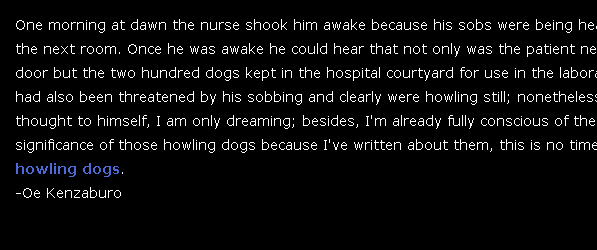
Holy bajeezus, people, there are a lot of games.
It only takes a quick hop through Greenlight to be overwhelmed by the available options in indie right now. A new Humble Bundle seems to happen once a month anymore. Or check out Free Indie Games any time of the day to be hand-delivered a brand new game that you can play immediately, in the comfort of your own home, for zero dollars.
Despite my doom and gloom about mobile and Facebook, if you want to develop a game of your own, on your own, there is no better time to start than right now. 2012 was the year of Rise of the Videogame Zinesters, the manifesto that everyone can and should make their own personal games. It was the year of Fuck This Jam! where game-makers were tasked to make games in genres they personally hated.
GameMaker and Unity 3D offer just a couple of options for people who’d like to try their hand at development. RPG Maker was a big seller on Steam in 2012. If you like writing and a bit of work, Inform 7 allows easy access to your own text adventure games (I learned that tool myself in 2012). If you like writing with a couple pictures, StoryNexus is now an open development platform. If you like writing but want really fast results, there’s now Twine, a quick and easy choose-your-own-adventure tool that’s on fire on the internet. The screenshot I’m using here is from my favorite Twine game this year, howling dogs, which you can also play right now for zero dollars.
The possibilities are becoming swiftly endless. Open-source consoles are on our horizon, and more new tools are bound to come as the demand increases.
2012 was a pretty good year. I’m not sure, all said, that it was my favorite year of game-playing.
But 2013 is looking like it may just be my favorite year of game making.
Let’s go!
Email the author of this post at aj@tap-repeatedly.com.


I liked Thirty Flights of Loving a lot more than I’d expected to, since I usually struggle to enjoy the sort of…artsy-er indie games out there. And while I understand the “we can tell a story without text or dialogue” angle, and think that’s important for both players and writers (especially writers!) to realize…I like words.
Halo 4 is something I’ve still played very little of, mostly because I do not own a 360. The Halo series is consistently the one thing I want to play on it. I’ve been intending to play this at my best opportunity because I like the universe and the previous games about as well as any shooter I’ve played, but your endorsement continues to make me want to play it for other reasons. And not necessarily in the co-op setting in which I have usually played the others.
And Inform’s a lot of fun to play with. I learned it years ago (I think it was just after Inform 7 had replaced Inform 6) and it’s one of those things I’ve always meant to go back to. Eventually. Someday.
All great choices, AJ! There were some here I’d never heard of; some I mean to play but haven’t gotten around to, and some I agree with wholeheartedly.
Moving into 2013, it’ll be the year of truth for Kickstarter games. Phenomenon or flash in the pan? How many of these often untried new studios will be able to manage the budgets, timing, and workflow necessary to produce an indie game on a shoestring? And how many more copies will sell? Greenlight’s ironed out most kinks, but as you say, perhaps its biggest impact is making us realize how MANY GAMES THERE ARE OUT THERE.
2012 could have been the year in trends. One thing I noticed is how many more small indie games appear, either on my Winners list or in the list of Honorable Mentions. I tend to think of myself as a COTS player, but here I was transfixed by very different things. There’s a lesson in that.
Thanks for being first to start the parade!
Was there ever any mention of Fez coming to PC? Did it get canned or something? And damn, I really, really, need to play The Walking Dead. I’ve not heard a single bad thing about it. I managed to restrain myself from buying a single thing over the Steam sales but the one game I nearly picked up was Thirty Flights of Loving simply because I knew I could ‘fit it in’ somewhere.
As somebody who generally doesn’t play on Facebook, hasn’t until recently had a smart device to play mobile games and didn’t help kickstart anything apart from Sportsfriends I can’t comment too much on the trends (aside from YES, there are a lot of games! Sigh.) but I’m certainly hoping to make a start on what I think is a relatively simple game idea that crystalised following our short email exchange about Fuck this Jam, which is such an inspirational idea for a jam.
Thanks AJ!
@Gregg – Yes, Fez is still slated for PC release some time next year. Maybe they’ll fix the save errors with the new version. Chances are good it’ll show up in a bundle or something at some point so the price should be right.
I saved “there are a lot of games” for last because it was I think the most important thing I wanted to say. There is SO MUCH. I got an OnLive subscription as a gift this year so I have even more to dig into. And a lot of the games I enjoyed in 2012 weren’t made in 2012, which I think is OK.
Thirty Flights of Loving is on sale at steam for 50% off today. I picked up a digital copy there to hopefully download in the near future.
AJ you have single-handedly got me to put Walking Dead at the top of my to-buy list once my tax return comes in. It’s been a while since a story-centric game has come across my radar.